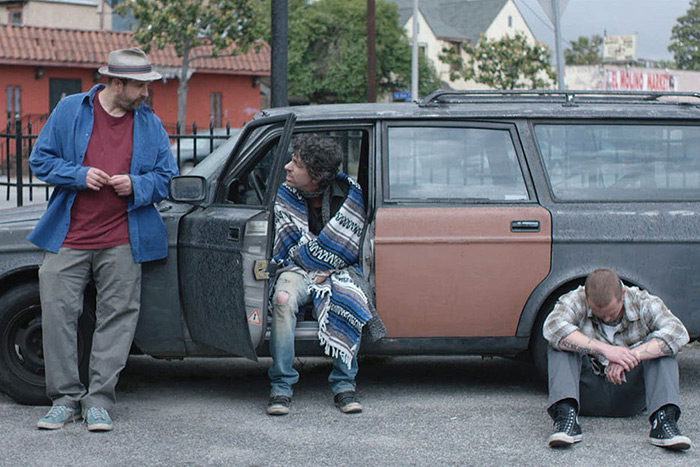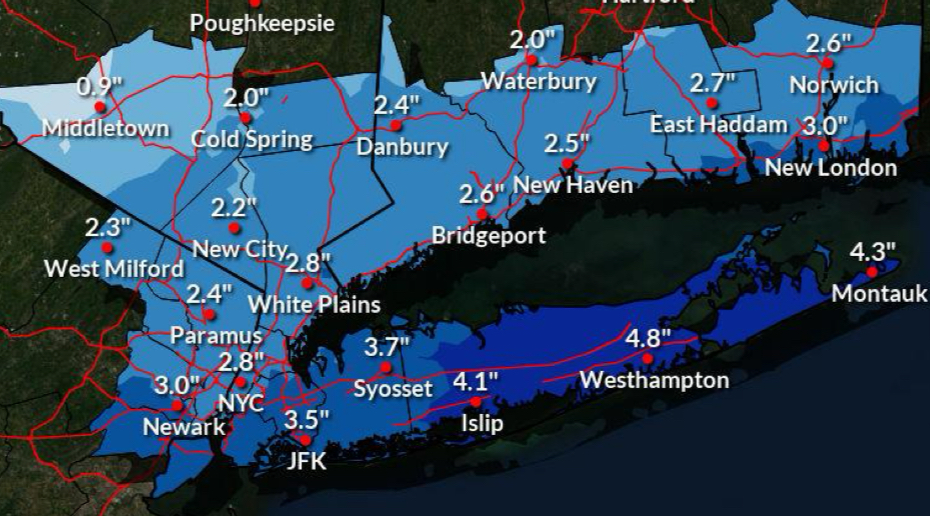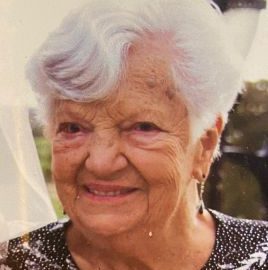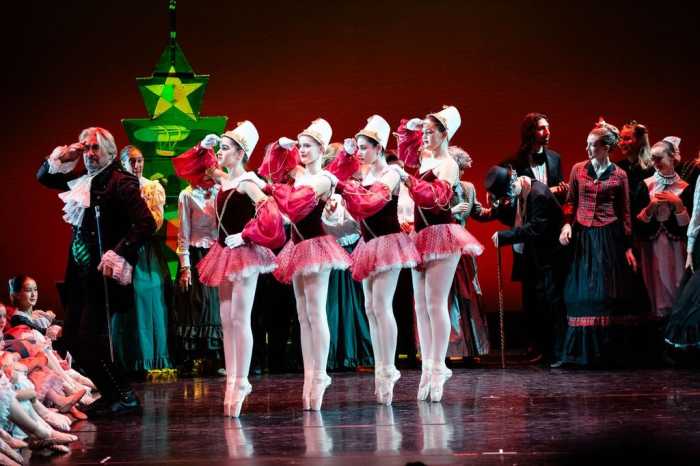Danny Peary Talks To… 'A Thousand Junkies’ Director Tommy Swerdlow

By chance this week I discovered that A Thousand Junkies, the wildly amusing yet unsettling directorial debut of screenwriter Tommy Swerdlow (Cool Runnings, Little Giants and Snow Dogs) has been added to Amazon Prime. I thought it was one of the most original and provocative films at last year’s Tribeca Film Festival and hoped it would get a theatrical run and a lot of attention.
Since it’s not even one of the movies Amazon is highlighting, I want to alert you to its presence.
From the Press Notes, a Short Synopsis: “As Los Angeles wakes up and goes to work, so do TJ, Blake, and Tommy, three junkies whose workday consists of driving around L.A. in a battered Volvo station wagon, figuring out how to get their drugs for the day. As plans A, B, C, D and E fall through, the trio starts to come apart at the seams. When Blake brings up the idea of violently robbing a drug dealer friend of Tommy’s, we find out who these three really are and what they are willing to do to get what they need. “A drug movie with no drugs, and a road movie that goes nowhere, A Thousand Junkies is a dark, visceral comedy about the 9 to 5 job of being a junkie, and the strange bonds that are formed between addicts.”
Watch the trailer:
What makes the movie particularly compelling is what the filmmaker wrote in his director’s statement:
“Between 1988 and 2007, I, Tommy Swerdlow, then of extremely unsound mind and body was strung out on heroin and methadone, and usually both at once….In retrospect, it is truly amazing what a healthy junk habit can make you do, and my stories around the pursuit of what I needed are far more interesting than the drug use itself, which was mostly me in a bathroom (often public) bleeding on the floor. There was also a lot of waiting for dealers on the streets of south central Los Angeles….A lot…A LOT! Then, somewhere along the way this very odd thing happened, I started getting jobs writing family films…but I couldn’t stop shooting drugs, and soon my hotshot Hollywood screenwriting career was in the rear-view mirror, and getting smaller. In 2007, my bad habits led to a serious valve infection and I had to have open-heart surgery. Then nine days later, while in intensive care, I got a bleeding ulcer that they could not stop and bled out my ass for 36 hours….I was in the hospital for 66 days, and when I got out it took me four years to get off all the methadone they had me on, and become truly clean. A few months after that I got an idea to make a simple, short movie with two guys in my AA home group [co-writer TJ Bowen and Blake Heron]. They were both clean junkies as well. It was about something we all knew about, heroin addiction.”

The short led to the feature. I enjoyed hanging out with Tommy Swerdlow a bit during the festival last April, talking New York sports over coffee, but before that we had his conversation:
Danny Peary: You’re from Long Island.
Tommy Swerdlow: Yeah, I grew up in Great Neck till I was 12. Then we moved to New York City, to the upper West Side. I was on Broadway and 79th, then 87th and Central Park West. I went to school on 88th and Central Park West, so that’s ground zero for my whole life.
DP: Did you go to the movies?
TS: Not that much. I wasn’t a movie geek. In fact, it wasn’t until recently that I got into cinema. It was Hulu having the Criterion Collection that did it to me. I took myself to film school.
DP: Are you happy to be back in New York with your movie at the Tribeca Film Festival?
TS: I’m really happy. It came from out of the blue. They were really cool. It was the one festival that was like, “Your movie is very original and we’re very interested in having it.” And we said, “We’re gonna go where they want our movie.” We really appreciated that they saw our movie as being something unusual.
DP: Because it’s so unusual, and the audience finds itself rooting for three likable guys to score heroin, have you been asked any strange questions during Q&As at Tribeca?
TS: The best question we got was, “Are you guys actors?” Which is either one of the most flattering or insulting questions we could ever get.
DP: I could tell you had acting experience, and I could tell Blake had acting experience.
TS: And TJ Bowen is the best of all of us, but had none. So that’s how you know how little acting experience does for you. TJ was a standup and his timing is great.
DP: Stand-ups can do comedy, they can act.
TS: And he was a heroin addict, so he’s got both sides working for him.

DP: Blake was also a heroin addict?
TS: We all met at the same AA home-group meeting in L.A. We met at some guy’s house.
DP: How many people were in the group?
TS: Not that many. It would fluctuate. It was started by Bob Forrest, the guy on that show Celebrity Rehab.
DP: I don’t watch that.
TS: I don’t either. He started this meeting and I actually got the idea for the short that we based this feature on from just knowing these guys that I wanted TJ and me to write about. I thought it would be interesting that Blake was very different from me and TJ, who have a similar way of seeing the world.
DP: In A Thousand Junkies, you three guys remind me of high school buddies hanging out, saying, “What are we gonna do today? Let’s go score some weed…” You know each other’s traits and you know everything about each other, that’s why you can go as a threesome to every place. It seems like you three have known each other forever.
TS: TJ, Blake, and I have on some level a real rapport which I’m hoping comes through.
DP: In the film, the three of you seem to be at the same level of addiction. When you did this group thing together, were you all at the same level?
TS: We never used together. We were only in recovery together. It would be weird that any addict would be in a threesome as continuously as they are in the movie. One other person would be more in style. So that’s a little bit of a device for a movie, but for just one day it’s possible that three addicts would be hanging and going through this drug search together.
DP: You don’t think these three guys in the movie meet up every morning and just spend the day together.
TS: They do in the movie, but I’m just saying that in terms of real heroin addiction, it’s usually two dudes. It’s not like smoking weed, you know what I mean? If you came across a bunch of money, it’s not like you share these kind of drugs—they’re not social drugs on any level. But if you’re with one other cat, the two of you might together be in the war of getting this shit because you’re both strung out. There’s no level to it—you’re either strung out on that drug or you’re not.
DP: In terms of the recovery aspect, is it healthy for three guys to spend time together?
TS: And stay clean together? Yes, that’s totally healthy. Using together? No. We’re not clean in the movie.
DP: But in real life?
TS: Absolutely. It’s all about community. I hear now that in Spain, they’re doing things where they’re not even trying to get people off their drugs before they sort of plug them into community. They put that before even stopping the substance you’re doing, because isolation is such a profound element of addiction.
DP: So you’ve made a drug movie with no drug taking. Very unusual. Was that your tag line to yourself right at the beginning?
TS: Yes, for me and TJ. I wrote the short, then he came in and worked with me on this script. I said in a Q&A at Tribeca, that if you look at drug movies, they tend to fetishize the coolness, the danger and the drug use. Especially the drug use, because ritual is compelling to people, and there is serious ritual involved in the shooting up of drugs. It’s a radical act and it’s very cinematic. But that is the least interesting thing to us.
What’s interesting to us is, and it’s because we were clean for a while, is how ineffectual, pathetic and childlike we are, and our desperate need for heroin and what we’re willing to do to get it. Fetishize our pathetic-ness, as opposed to our badass-ness and the actual using of the drugs. Also I had the idea—I think TJ did too—that it’s like any workday for TJ, Blake and me, and also our pursuit of drugs is a metaphor for searching for love. Like we’re just out there longing to get whole and looking for love in all the wrong places.
DP: Love for drugs?
TS: No, just to get loved. Maybe just to get momma’s hug. Heroin is a very archetypically maternal in terms of its warm-embrace nature. We’re uncomfortable in our lives and we’re wrong and we need to get right. We need love. We need to be made whole.
DP: Was it a goal for you to present three heroin addicts on screen trying to get drugs yet have viewers like them? Like Cheech and Chong but with harder drugs?
TS: No, that was not our goal. We never thought that. We simply presented ourselves and the rhythm and things that we speak about, and never considered likability. Though, I did know that TJ is an intrinsically likable person and that there is something in the non-junked-out, sleazy, skinny, slinking depiction that would at least humanize us. But I didn’t think about likability. Even when I wrote Cool Runnings I wasn’t thinking about that. I think about such traits as integrity and decency. People do tend to find the characters that I write accessible and likable, but that’s never my goal.
DP: I mentioned Cheech & Chong. Is there any connection between A Thousand Junkies and Up in Smoke?
TS: (laughing) I guess my film is sort of a Nietzsche-esque Cheech and Chong, with a whole other side of existential horror.
DP: While watching A Thousand Junkies, I was wondering if you realized it was a variation on Waiting for Godot, with your threesome waiting for a drug connection who never appears. Then I read in your production notes that you say, “the essential text has always been Waiting for Godot.”
TS: Something about Waiting for Godot really appeals to me. Maybe living is all just waiting. I did say something about the play when I did the money-pitch video for Indiegogo. I said, “It’s like Waiting for Godot but when Godot doesn’t come, we decide, “Let’s go get Godot!”
DP: Is your film out of the Theater of the Absurd?
TS: Yes! I’ve read only a couple of reviews—I’m sure I’m sent only the good ones—but they all used the words absurd and pathos, writing about the balance. We get to actually show destroyed relationships with people in our lives, which I guess helps drives that point home.
DP: You have the pathos in your movie, but you also have the absurd humor.
TS: Yeah. We were far enough away from it to see the absurdity and, really, our big take was “The Little Rascals Try to Score.”

DP: Blake and TJ were both in your short. How did you explain your film to them originally?
TS: I had a script and it was sort of the third act of this movie, with Blake going to rob someone and me showing how we’d gotten that desperate with a couple of flashbacks. It had the general tone and visual style of the feature. I didn’t really have to explain much to them. They were friends and they trusted me. And I had just gotten off methadone and was clean and capable of doing this. What’s going on with the opiate epidemic is so intense, and people were asking me, “Are you making too much fun of men scoring drugs? It’s not a cautionary tale and it’s not expressing any morality.”
TJ and I were super conscious not to express any opinion about it, but I realized recently that the very fact that we made this film is why it has value. We actually couldn’t have done it if we were still high. I was able to write those earlier movies when I was high, but I never could have directed them, too. I was able to show up every day and sit in front of a blank page, but that was all. So to me that we made it makes this a recovery movie. It proves that you can get somewhere with all this horror and if you can get clean, you can actually get something done. Because it is tough when you’re strung out to do anything but get yourself well. That’s real about the movie.
DP: One of the really striking things in the film for viewers but also for you is when you acknowledge how much time you wasted in your life waiting for drugs. You actually state some astronomical amount of time in the movie.
TS: Figuring out how much time I lost, I don’t know how that idea came to me. Maybe something inspired me from somebody else’s work but the idea of reducing it down to its most unsentimental accounting of time resonates with people more than anything else in the movie in terms of the pain of addiction. That’s more interesting than showing someone overdosing or there being another catastrophic event.
I wasted my life. There’s something very religious about it when you’re in it. It’s a religious pursuit for the devil instead of God. It’s so compelling, I can’t tell you how. When something is going through your system that really makes you that sick, you really are choice-less and you really are in a subservient role like you would be to a master or a religious figure.
DP: When you wrote Little Giants, Snow Dogs and Cool Runnings and were the first writer on Shrek, did people know you were an addict?
TS: No. You know what, it’s not that kind of drug. It’s not LSD, it doesn’t trip you out. It just simply isolates you. When I was right, between highs or whatever, I was still myself. That’s part of what the movie is about. We’re still funny because we’re funny guys!
DP: The surprise is how you’re able to function and think creatively. We know musicians do it, Billie Holiday, so many others in jazz…
TS: (laughing) A famous line is, “Heroin addicts are bad when they don’t have their drugs, and coke addicts are bad when they do.”
DP: Talk about the two scenes with the females in the movie, TJ with his girlfriend and you with your ex-wife and daughter.
TS: The real casualties of that life are the relationships. What you do is burn out people. TJ’s part was very much written just for who he is and he did have a girlfriend who went through hard times with him. TJ goes to her, “Why do you want to get rid of me?” And she goes, “Because you don’t love me, you don’t fu_k me, and you steal everything I have.” But he says, “But I want to love you, I want to fu_k you, and I wish I didn’t steal.” People really laugh at that line. It really resonates, because he’s not really a bad person, he’s just sick. But he’s destroying her and he’s ruining that relationship, and he’s being incredibly selfish.
DP: He’s being completely honest, which is weird. And she still doesn’t kick him out.
TS: Right.
DP: Is TJ’s girlfriend the young version of your character’s ex-wife, before she kicked you out?
TS: I don’t think so. I don’t know if TJ’s relationship with his girlfriend is gonna last long enough for him to get it together. I don’t think so. She is going to throw him out. We thought of her representing Al-Anon. She can’t make a boundary with TJ. Whereas my ex-wife has clearly made a boundary with me. Will his girlfriend get to the point where she must make a boundary? If she does, they won’t be together.
DP: Your ex was probably was more sympathetic to your character years before but finally realized she couldn’t tolerate your addiction anymore and from then on stood her ground.
TS: Right. My ex rips into me and says, “Get out of here, I’ll call the police.” I say to her, “Why are you being like this?” as if I’m the sane one and my request to our daughter for $100 so I can buy heroin is completely legit. I think I’m in the right. It’s the same when I go to Bill Pullman and ask him for money that I believe I’m entitled to because I once gave him a car. We think we’re in the right and that all these people who turn us down are wrong.
DP: Is Bill Pullman really your friend?
TS: He really is my dear friend and I really did give him that car. It’s all true. I didn’t talk to Bill for 20 years. We started a theater company together in 1985, but I just disappeared. When I got clean we got back into each other’s lives. That’s a real casualty of what this stuff does, because people don’t want to watch you kill yourself. It’s too painful for them.
DP: Is that really your ex-wife who plays your ex-wife in the movie and argues with you and says really angry things to you? I can’t believe she was willing to do that!
TS: Yes, that’s my ex-wife who comes outside of the house and confronts me. That’s not my daughter but it’s my friend’s daughter. I tried my son first. but he’s a little too old. My ex is great. What you see between us is very real. In fact, everything in this movie that can be true is true and it’s real but reduced and narrativized in a way where it becomes fiction. It still contains real-story energy. I grew up on the Upper West Side with Kenny Lonergan. His first big hit play was The Is Our Youth [Off-Broadway 1996] and it’s about me and a good high school friend.
And in it, I break down at the end and start going to the other kid, “And I’m going to direct movies, and I’m gonna use all the real people, and I’m gonna be so fucking good at that.” And the guy says to me, “I don’t see why you’ll be any good at that at all.” And I get all offended, and it’s funny. So with A Thousand Junkies I did really use real people and put what I said into practice.
DP: What about the African American guy who sells you a used car so you can drive to get drugs? How real was he?
TS: Eric Priestly became a member of the Watts Writers Workshop that Budd Schulberg started after the Watts Riots in ’65. He’s a friend of mine and what he says in the film he has said to me in real life, including about his brother and the Phoenix missile defense system. It’s his shtick. It’s all real.
DP: It took you four years to finish the film. That doesn’t surprise me because it takes that long to make a movie, but you made a movie that looks as if it was made almost in real time, in a day or two. That’s not an insult, it’s a good thing.
TS: I hear you. TJ was so worried that we couldn’t match scenes we did later with ones we did early and he was almost ready to quit at one point. This is what happened. We got it together to raise enough money to shoot for 12 days, thinking we’d finish. Then things came up. We probably shot what we were able to cut to about 35 minutes. And that was with one DP named Warren who did a great job. The kid who shot the short, John De Menil, is who finished it with me. He’s my partner in doing all this stuff. I never had to worry about the camera because he is incredibly talented and he’s got a sympathy and understanding and love for us that energetically comes through.
I would take him down to the hood for days and days and days. My brother’s sister-in-law owns six Red digital cameras, so we could take one into the neighborhood in which this movie takes place in and use natural light—and people there would leave us alone. We had that ability to go out and get stuff shot, but it just took time to do that and to raise money. It started to take on aspects of the day our three characters have in the movie. The finishing of our movie became like finally getting the dope. It was like being on a never-ending existential quest. As it went long term, we were facing a lot of self-doubt. That was the hardest part.
We were willing to finish something that was important and not junkie-out and go, “I’m more interested in this failing.” Because that’s what my psyche is used to. I could have been more interested in this not happening because I can almost get more juice out of what a disaster I am than I am if I actually saw this through. It actually was a challenge for me and TJ and all of us to show up and do this thing and finish what was really important to us. To be willing to do it and feel good about it and bring some real joy to our lives. And some adultness. Because I would say kids get excited, start and stop, and adults finish. We were kids—that’s why we lived that life.
DP: I’m glad you three have moved on. Did the group meetings continue?
TS: Yeah, but the guy whose house was where we met had a baby so it moved. I had it at my house for a minute, but it moved and still goes on. TJ has a kid so he doesn’t go to that many meetings anymore and Blake started to go to other meetings.
DP: Are you surprised by the positive reaction to your film at the festival or has it been confirmation that you felt you’d made something people would like?
TS: I’m not surprised by the reaction at all., I had a feeling that if I took my background of writing family films and 30 years of screenwriting, and a Jewish comic’s understanding of the universe because I watched a lot of TV and juxtaposed that with a sort of documentary world of Los Angeles, and also wrote the three of us as narrative characters—making a story out of our real lives—that it was going to work. I am pleased we were able to get out of our own ways enough so that our acting worked and our ideas come across. So I’m not surprised. But I am glad. There’s a lot of wonderful peace for us in having completed this movie.
Danny Peary has published 25 books on film and sports, including Cult Movies and Jackie Robinson in Quotes.









